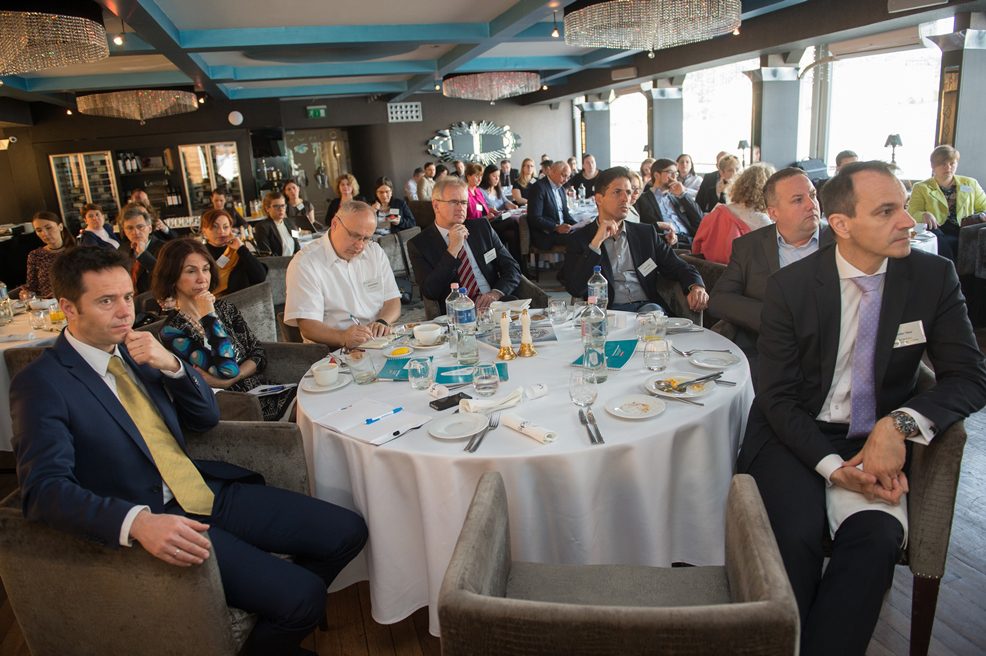Flexibility and stability both count in the future labour market.
The issues and challenges of a transforming employment market were discussed at the BCSDH’s business breakfast and Action2020 Forum with Annamarie Muntz, the President of the WEC (World Employment Confederation) which was held on 26th April.
Annemarie Muntz – an acknowledged expert in the field – is Director of Randstad Holding Public Affairs. Her successful speech at the business breakfast of BCSDH (the Business Council for Sustainable Development in Hungary) – which represents a community of 80 member companies that contribute 30% of Hungary’s GDP -, was followed by workshops which were designed to promote real steps towards creating sustainable employment.

“We are all looking for security in work and income. At the same time, we need flexibility in terms of when, where and how we work. This means that the inclusive and competitive labour market workers and business want for our future should be agile and adaptable. By combining a variety of decent employment contracts with modern social security and accessible employability schemes we can do that. And provide sustainable prosperity for all.”– pointed out Annemarie Muntz.
The stability and competitivene ss of an economy is tightly connected to the strength and quality of the employment situation.
ss of an economy is tightly connected to the strength and quality of the employment situation.
Hungarian employment policy has the same target as Action2020 Hungary: to raise the employment rate to 75% by 2020.
“Although last year an upturn was recorded, the current employment situation in Hungary remains an urgent problem. Increasing numbers of enterprises are faced with the increasing difficulty of creating a workforce of appropriate quality. New solutions, models and at times radical changes are needed. The role of the business sector cannot be disputed, and increasing its positive impact is our common responsibility.” – stated Attila Chikán Jr., President of BCSDH, in the introduction.
 “In 2017, the Action 2020 Forum is focusing on three hot topics for the labour market in Hungary: skills and competences, diversity, and motivating employees to work in Hungary. During the Forum we focus on identifying the most important internal and external barriers and on disseminating pre-existing ‘beyond-business-as-usual’ solutions, and inspiring new ones”– pointed out Sándor Baja, CEO of Randstad, and Leader of the BCSDH’s Action 2020 Employment Working Group.
“In 2017, the Action 2020 Forum is focusing on three hot topics for the labour market in Hungary: skills and competences, diversity, and motivating employees to work in Hungary. During the Forum we focus on identifying the most important internal and external barriers and on disseminating pre-existing ‘beyond-business-as-usual’ solutions, and inspiring new ones”– pointed out Sándor Baja, CEO of Randstad, and Leader of the BCSDH’s Action 2020 Employment Working Group.
“As an HR service company, we are facing the fact that employers are looking not only for professional knowledge, but also skills and competences such as good problem-solving skills, flexibility, creativity, and the ability to work in a team. The role of the business sector is unquestionable” – added Sándor Baja, moderator of the first group.
“Diversity could be a tool for managing the labour shortage. Companies have to be opened up to particular groups of workers and atypical forms of employment which are now actually not or only marginally found in their business practices. This is not only their social responsibility, but also their business interest” – said Zoltán Vadkerti, CEO of WorkLife HUB, as facilitator of the group for this topic.
“The number of employees who are working abroad, or planning to do so, is increasing. It is not the emigrants who create risks to the balance of the labor market, but their composition, and whether such employees are staying abroad and are permanently eliminated from the Hungarian labor market. If we additionally take demographic changes into account, an increase in the competition among employers for employees may be expected in the near future”– said Mirtill Megyeri, a Consultant of Colibri HR Solutions in her introductory speech as a moderator.

The main aim of the Action 2020 Hungary Forum is exactly this: to initiate a collaborative approach and joint efforts of the business sector that will make a real difference. Over 50 companies have already joined the program.
Presentation of Annemarie Muntz: FINAL – The future of work in an employee driven labor market – ANNEMARIE MUNTZ
You can find more pictures of the event here.

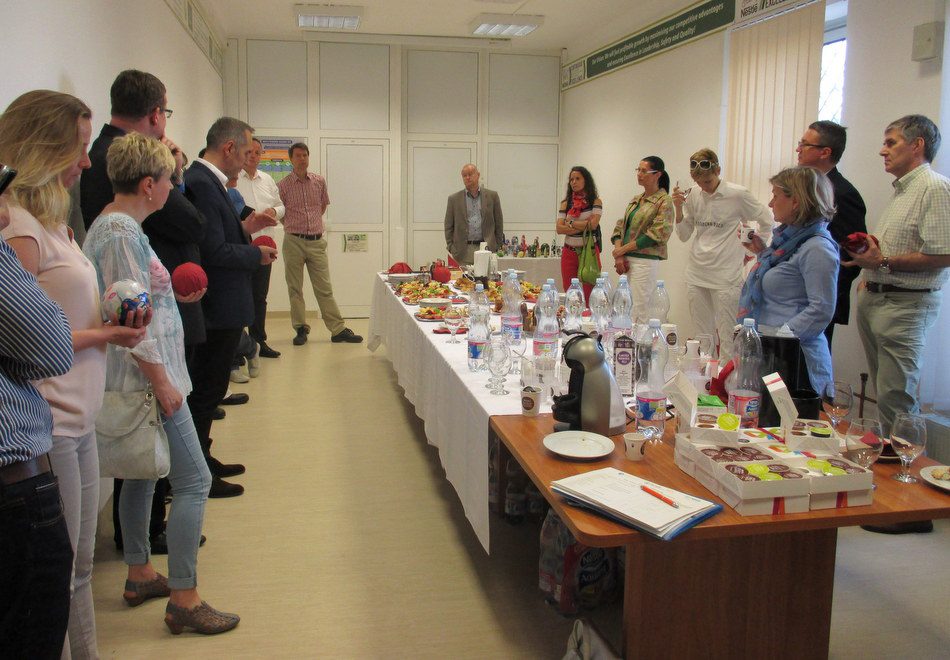
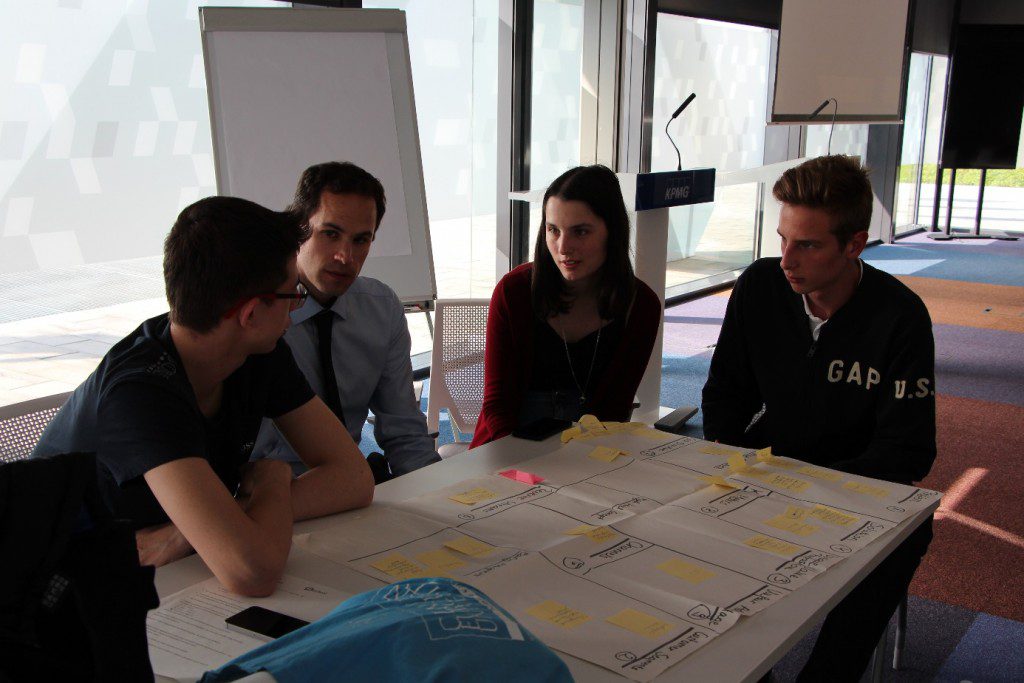
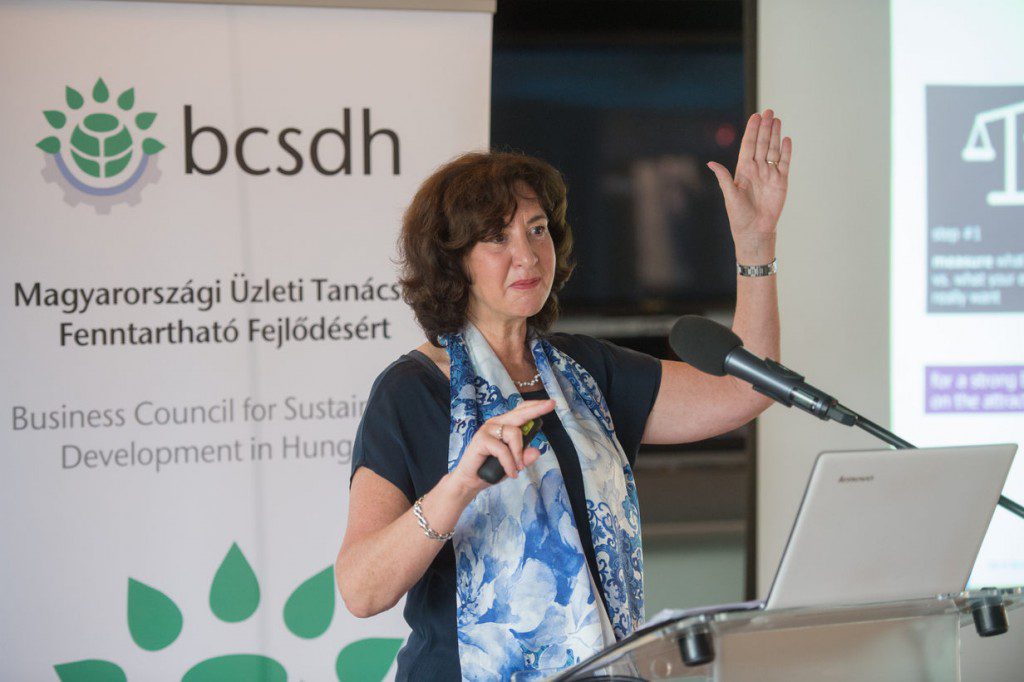
 ss of an economy is tightly connected to the strength and quality of the employment situation.
ss of an economy is tightly connected to the strength and quality of the employment situation.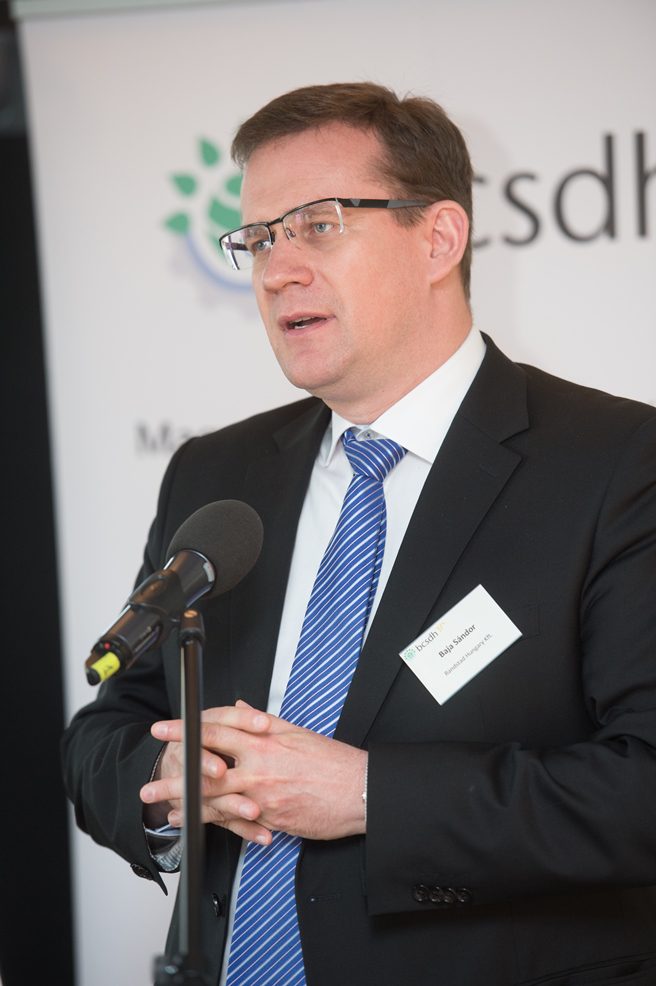 “In 2017, the Action 2020 Forum is focusing on three hot topics for the labour market in Hungary: skills and competences, diversity, and motivating employees to work in Hungary. During the Forum we focus on identifying the most important internal and external barriers and on disseminating pre-existing ‘beyond-business-as-usual’ solutions, and inspiring new ones”– pointed out Sándor Baja, CEO of Randstad, and Leader of the BCSDH’s Action 2020 Employment Working Group.
“In 2017, the Action 2020 Forum is focusing on three hot topics for the labour market in Hungary: skills and competences, diversity, and motivating employees to work in Hungary. During the Forum we focus on identifying the most important internal and external barriers and on disseminating pre-existing ‘beyond-business-as-usual’ solutions, and inspiring new ones”– pointed out Sándor Baja, CEO of Randstad, and Leader of the BCSDH’s Action 2020 Employment Working Group.